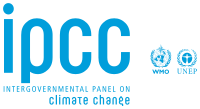
Photo from wikipedia
Integration of the social sciences into climate assessments enhances report content and actionable science. The literature has identified the benefits and challenges in achieving coequal intellectual partnerships between the social… Click to show full abstract
Integration of the social sciences into climate assessments enhances report content and actionable science. The literature has identified the benefits and challenges in achieving coequal intellectual partnerships between the social and biogeophysical sciences in climate research. Less has been written on how to rectify the issue in the particular institutional context of a climate assessment. This article uses qualitative research methods to analyze social science integration in the United States' Fourth National Climate Assessment. It presents findings from focus groups held with social science-and nonsocial science-trained report authors. It finds that knowledge governance, or the formal and informal mechanisms shaping how information is produced and used, and cultural worldviews about the role of social sciences in assessments and assessments in society, affected social science integration. Report authors' principal orientation toward the social sciences was as a means of achieving what they saw as the assessment's public function, namely, to support education, decision-making, and action. Author expertise, report framing, and knowledge systems were other key themes that emerged. Based on this analysis, we propose potential pathways toward coequal intellectual partnerships in assessments by expanding the diversity of chapter teams' expertise, enhancing connections between authors and society, reconsidering report framing, and broadening inclusion of knowledge systems. We also discuss the potential role of applying social science theories and methods throughout the report life cycle from framing and engagement to evaluation.
Journal Title: Weather, climate, and society
Year Published: 2022
Link to full text (if available)
Share on Social Media: Sign Up to like & get
recommendations!